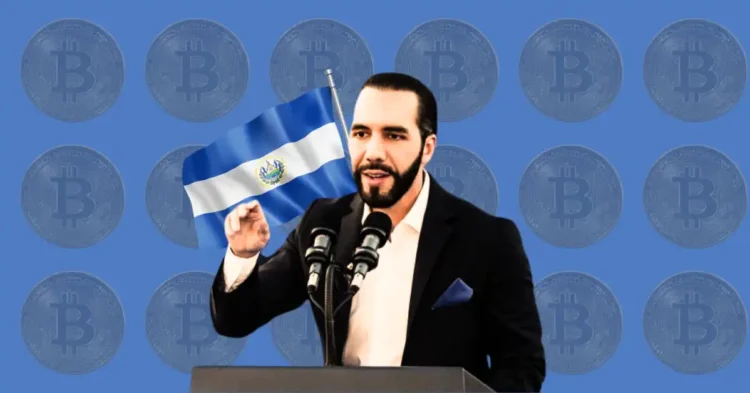El Salvador has made a significant move that defies an agreement with the International Monetary Fund (IMF), opting to deepen its investment in the Bitcoin market. The Central American nation has recently acquired at least eleven Bitcoin (BTC) tokens, an investment close to $1 million. This decision raises a crucial question for the global crypto community: What message is El Salvador conveying with this Bitcoin-friendly stance?
El Salvador’s Latest Bitcoin Purchase
In a noteworthy financial maneuver, El Salvador has added at least eleven Bitcoin tokens to its national reserve. With the current BTC price hovering around $93,347.36, this purchase represents a substantial financial commitment. Prior to this acquisition, the country possessed around 6,011 BTC tokens. The recent purchase increases El Salvador’s Bitcoin holdings to approximately 6,022 tokens, valued at an estimated $572 million.
Experts in the cryptocurrency sphere suggest that this latest acquisition underscores El Salvador’s sustained commitment to embracing and investing in the BTC market. The move signifies a broader strategy to integrate Bitcoin into the nation’s economic framework, despite external pressures.
A Consistent Bitcoin Buying Strategy by El Salvador
El Salvador’s strategy of accumulating Bitcoin is not a recent development but rather a consistent pattern that has been observed since February 2024. On February 29, 2024, the nation’s Bitcoin reserve was recorded at 2,381 BTC. By March 15 of the same year, this figure had surged to 5,689.7 BTC. As the year 2022 concluded, El Salvador’s Bitcoin holdings were approximately 6,002 BTC tokens. The current reserve of around 6,022 BTC illustrates a steady increase in their digital currency assets.
This consistent buying strategy suggests a long-term vision for integrating Bitcoin into El Salvador’s economic policies. Such a move could potentially influence other nations considering similar digital currency strategies.
El Salvador’s Agreement with the IMF: The Role of Bitcoin
Facing economic challenges, El Salvador sought a $1.4 billion loan from the IMF to stabilize its struggling economy. The loan is part of a broader financial strategy that includes approaching the World Bank, the Inter-American Development Bank, and various regional development banks for further assistance. The country aims to secure at least $3.5 billion in financial support to bolster its economy.
Four Key Conditions of the IMF
While the IMF has accepted El Salvador’s loan application, it has imposed four significant conditions that could potentially impact the country’s ambitious crypto plans:
- The IMF requires Bitcoin acceptance in the private sector to be voluntary, rather than mandatory.
- It demands the closure of the Chivo wallet, the official Bitcoin and Dollar wallet of the Salvadoran government, which facilitates free BTC transactions for users.
- The agreement stipulates ending the provision allowing tax payments in Bitcoin.
- Lastly, there is a call for reducing the involvement of the public sector in BTC-related activities.
In Conclusion: A Bold Experiment on the Global Stage
El Salvador’s ongoing Bitcoin acquisitions highlight its unwavering dedication to the cryptocurrency market, despite external pressures from bodies like the IMF. By strategically growing its Bitcoin reserves, El Salvador positions itself as a bold experiment in the global economic landscape. The nation’s actions may very well serve as a case study for the integration of cryptocurrency into national economic strategies, potentially influencing global financial policies in the years to come.










